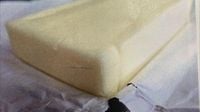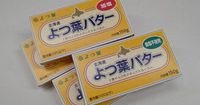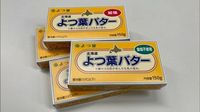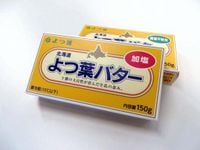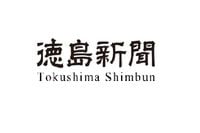Yotsuba Milk Products, based in Otofuke Town, Hokkaido, has announced a voluntary recall of approximately 6.28 million units of butter due to concerns about possible contamination with metal wire. The recall was made public on April 15, 2025, and affects 13 different products sold nationwide, including popular items such as 'Yotsuba Butter' and 'CGC Hokkaido Butter.'
The company stated that there have been no reports of health issues related to the contaminated products. However, the decision to recall was prompted by a customer complaint received on April 4, 2025. The consumer reported finding a foreign object resembling a bundle of threads attached to their 'Yotsuba Butter Salted' (150 grams) purchase.
Upon investigation, Yotsuba Milk Products confirmed that the foreign object was indeed stainless steel wire, measuring 1.8 centimeters in length and 0.07 millimeters in thickness. The company explained that the contamination likely originated from a damaged belt in the production line at their factory.
The recall includes household-size butter products manufactured between November 1, 2024, and April 11, 2025. Specifically, the affected products have manufacturing control numbers that start with "CC" and expiration dates ranging from April 30, 2025, to October 8, 2025.
Yotsuba Milk Products issued an apology for the inconvenience caused to consumers, stating, "We sincerely apologize for the significant trouble this has caused." The company has urged customers who have purchased the affected products to contact their customer service center at 0120-428841 for assistance.
The recall of such a substantial number of butter products highlights the importance of quality control in food manufacturing. Contamination incidents can lead to serious health risks, and companies are required to act swiftly to protect consumers.
In recent years, food recalls have become more frequent as companies adopt stricter safety measures and consumers become more vigilant about food safety. The incident involving Yotsuba Milk Products serves as a reminder of the potential hazards in food production and the need for ongoing scrutiny in the industry.
While no health issues have been reported in this case, experts emphasize that consumers should always inspect food products for any visible signs of contamination before consumption. This includes checking for foreign objects, unusual odors, or discoloration.
Food safety experts recommend that consumers stay informed about recalls and safety alerts issued by food manufacturers and government agencies. Many countries have established systems for reporting food safety concerns, allowing consumers to report issues directly to the appropriate authorities.
In Japan, the Ministry of Health, Labour and Welfare oversees food safety regulations, working alongside local governments and industry stakeholders to ensure compliance with safety standards. The ministry encourages consumers to report any suspected food safety violations to help maintain public health.
As the food industry continues to evolve, companies like Yotsuba Milk Products must prioritize transparency and communication with their customers. By promptly addressing issues and providing clear information about recalls, companies can maintain consumer trust and confidence in their products.
In conclusion, the voluntary recall of Yotsuba Milk Products' butter highlights the critical nature of food safety and the importance of consumer awareness. With millions of units affected, the company is taking the necessary steps to rectify the situation and prevent future occurrences. Consumers are encouraged to remain vigilant and report any concerns they may have regarding food safety.

